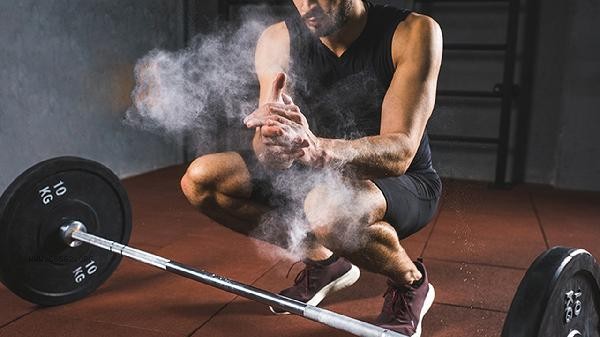The lack of muscle growth during fitness may be related to improper training methods, insufficient nutrient intake, insufficient rest time, abnormal hormone levels, genetic factors, and other factors.

1. Improper training method
Muscle growth requires gradual overload stimulation. If the same weight or training intensity is used for a long time, the muscles cannot obtain sufficient growth signals. Strength training should regularly adjust the number of groups, frequency, and weight, and compound movements such as squats and hard pulls can activate more muscle groups. Although isolated training can shape the body, its overall muscle building effect is limited.
2. Insufficient nutrient intake
Protein is the basic material for muscle synthesis, and sufficient protein intake is required per kilogram of body weight per day. carbohydrates provide energy for training, while fats participate in hormone synthesis. Trace nutrients such as zinc, magnesium, and vitamin D also affect muscle repair, and long-term calorie deficits can force the body to break down muscles for energy.
3. Insufficient rest time
Muscles complete repair and growth during rest, and require a recovery period of 48-72 hours after training. Lack of sleep can reduce the secretion of growth hormone, while an increase in cortisol can inhibit protein synthesis. Overtraining can lead to muscle breakdown, and excessive training frequency can hinder progress.

4. Abnormal hormone levels
Low levels of testosterone and growth hormone can significantly affect muscle building efficiency. Abnormal thyroid function may lead to metabolic disorders, and poor insulin sensitivity can affect nutrient absorption. The decrease in estrogen levels after menopause in women can also increase the risk of muscle loss.
5. Genetic factors
The proportion of muscle fiber types is determined by genes, and those with more fast muscle fibers are more likely to gain muscle. Certain genetic variations can affect the efficiency of protein synthesis or the speed of muscle injury repair. But through scientific training and nutrition, some genetic limitations can still be overcome.

It is recommended that the system record training data and dietary habits to ensure a balanced distribution of protein per meal, prioritizing high-quality protein sources such as eggs and lean beef. supplementing with fast carbon after training can help with glycogen recovery, while releasing casein before bedtime can reduce nighttime breakdown. Schedule active recovery days every week to relax the fascia through the foam shaft. If there is no long-term progression, testosterone and thyroid function can be tested to exclude pathological factors. Muscle building is a systematic engineering that requires the synergistic effects of training, nutrition, and recovery.






Comments (0)
Leave a Comment
No comments yet
Be the first to share your thoughts!